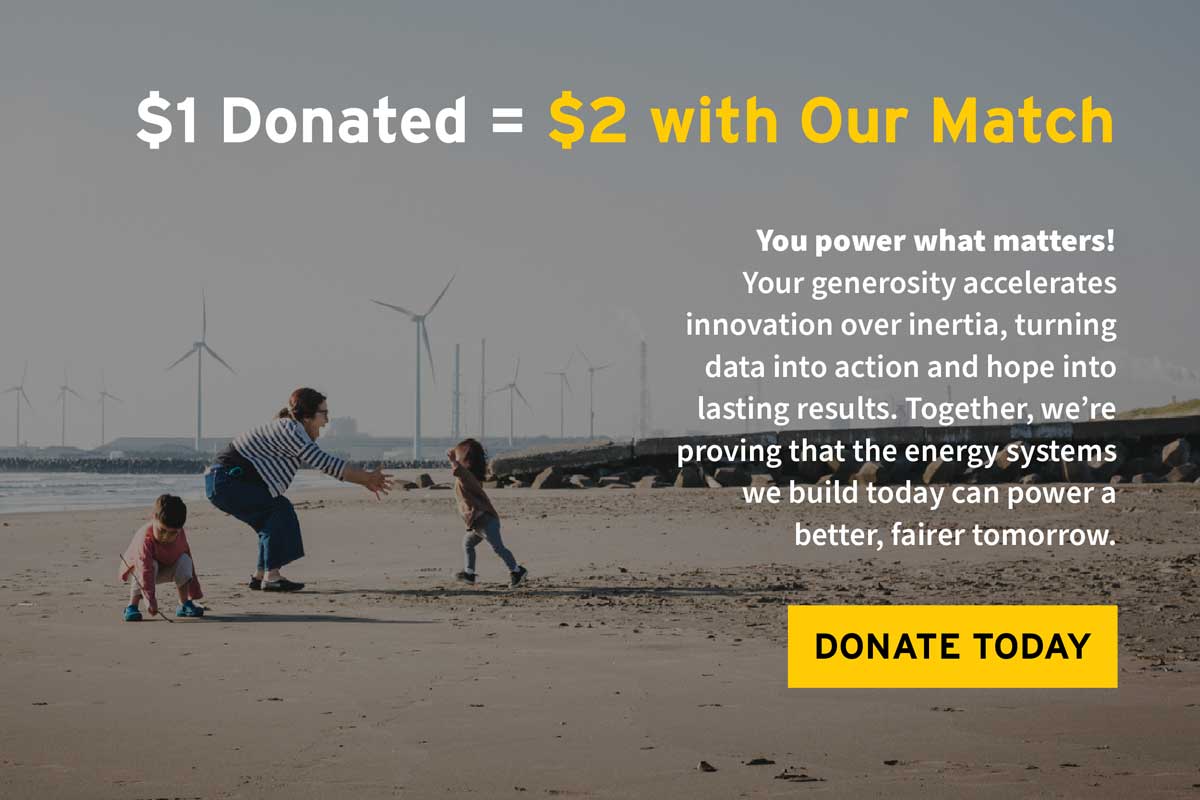
Recovery Stimulus Can Chart the Way for Resilient Economies in Sub-Saharan Africa
A new RMI report articulates six principles of strategic stimulus interventions for global responses to the COVID-19 pandemic and economic downturn, that can simultaneously benefit sub-Saharan African economies, the environment and local communities.
Boulder, CO – October 22, 2020
Today, Rocky Mountain Institute (RMI) released its latest report that describes six core principles of stimulus and recovery that should guide the sub-Saharan Africa responses to the COVID-19 pandemic and subsequent economic crisis. Together, the principles in the paper are a framework for governments, development partners and the local private sector that demonstrates how to build back stronger and more resilient.
Sub-Saharan Africa Stimulus Strategy: A Springboard for Increased Local Resilience and Economic Growth is the final RMI-sponsored report in a series of seven reports that outlines how targeted stimulus and recovery investments by countries around the globe can help to simultaneously address both the pandemic-caused economic crisis and the looming climate crisis.
“It’s exciting to see a myriad of organizations reporting about Africa stimulus packages—however, an aligned and coordinated effort is crucial to unlock and deploy rapidly stimulus funding to provide jobs, improve health and address climate concerns,” said Francis Elisha, principal at RMI and co-author of the paper.
The report advocates for aligning sub-Saharan Africa stimulus packages with existing and emerging priorities in the energy sector and providing sufficient investments and incentives to support resilient clean energy pathways across the continent. Investment in clean energy is an effective tool to transform sub-Saharan African economies and move toward carbon neutrality while generating positive spillover benefits for other sectors.
The six core principles for a green stimulus and recovery in sub-Saharan Africa presented in the paper are:
- Power critical facilities to reignite the economic engine: Develop national and/or regional programs to deploy distributed energy resources (DERs) for hospitals and other essential facilities that are critical to rural communities (e.g., schools, water treatment units).
- Accelerate electrification efforts: Invest in DER developers that prioritize standardized and modular designs—creating a larger, more reliable pipeline of clean energy projects that drive cost reduction.
- Electrify local economies: Increase investments in DERs through patient capital or low interest loans to minigrid developers to enable the rapid scaling of rural DERs.
- Electrify transportation: Expand impact funds support to include sustainable mobility: DFIs, philanthropic organizations, and impact investing can play a critical role by supporting mobility initiatives.
- Unlock energy efficiency: Provide matching contributions to revolving funds dedicated to energy efficiency to complement initial financial streams such as savings from reducing subsidies or local capital.
- Accelerate utilities’ transition toward modern, clean technology: Provide a green guarantee mechanism to incentivize private sector investment in resilient clean energy projects to accelerate a green recovery.
To download the Sub-Saharan Africa Stimulus Strategy, visit rmi.org/insight/africa-stimulus. To learn more about the RMI Africa, Islands and Southeast Asia program, follow @RMI_DevEcon on Twitter.
Media Inquiries please contact:
Alexandra Chin, Rocky Mountain Institute
Telephone: +1 973-262-0002
E-Mail: achin@rmi.org
Notes to Editors
About Rocky Mountain Institute
Rocky Mountain Institute (RMI)—an independent nonprofit founded in 1982—transforms global energy use to create a clean, prosperous, and secure low-carbon future. It engages businesses, communities, institutions, and entrepreneurs to accelerate the adoption of market-based solutions that cost-effectively shift from fossil fuels to efficiency and renewables. RMI has offices in Basalt and Boulder, Colorado; New York City; the San Francisco Bay Area; Washington, D.C.; and Beijing.
More information on RMI can be found at rmi.org or follow us on Twitter @RockyMtnInst.
